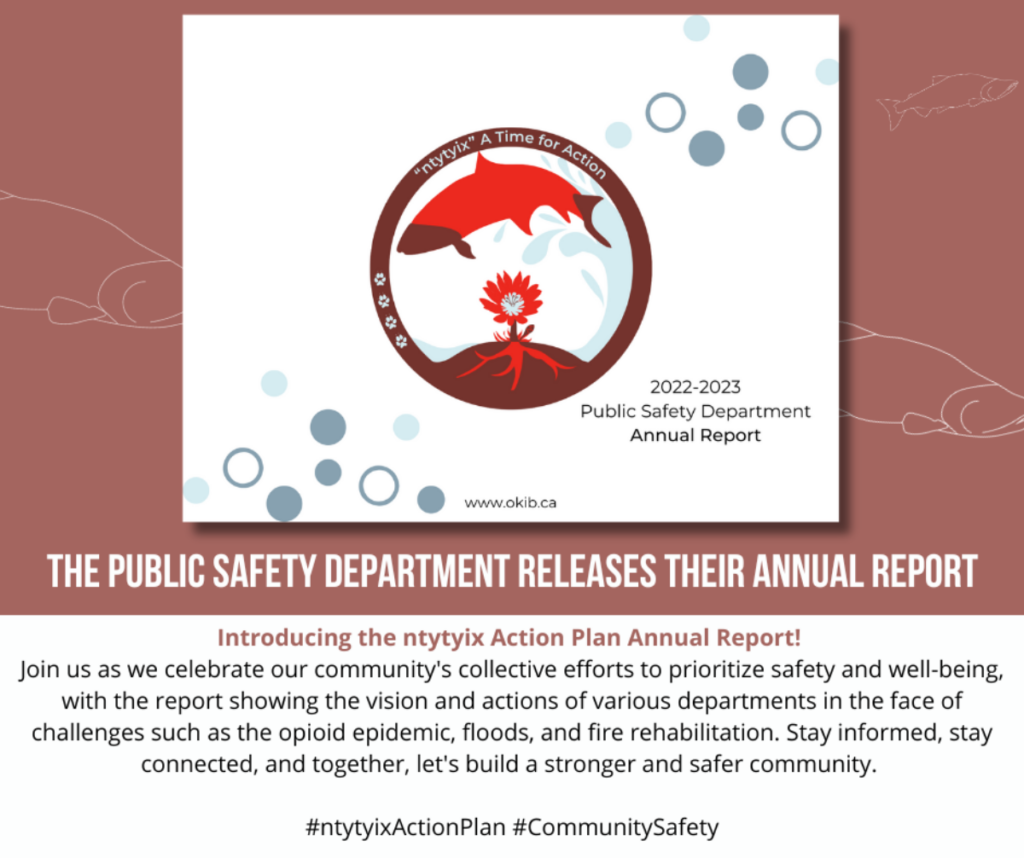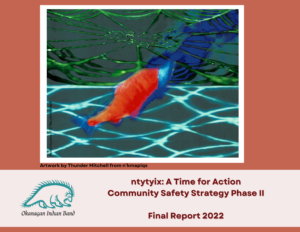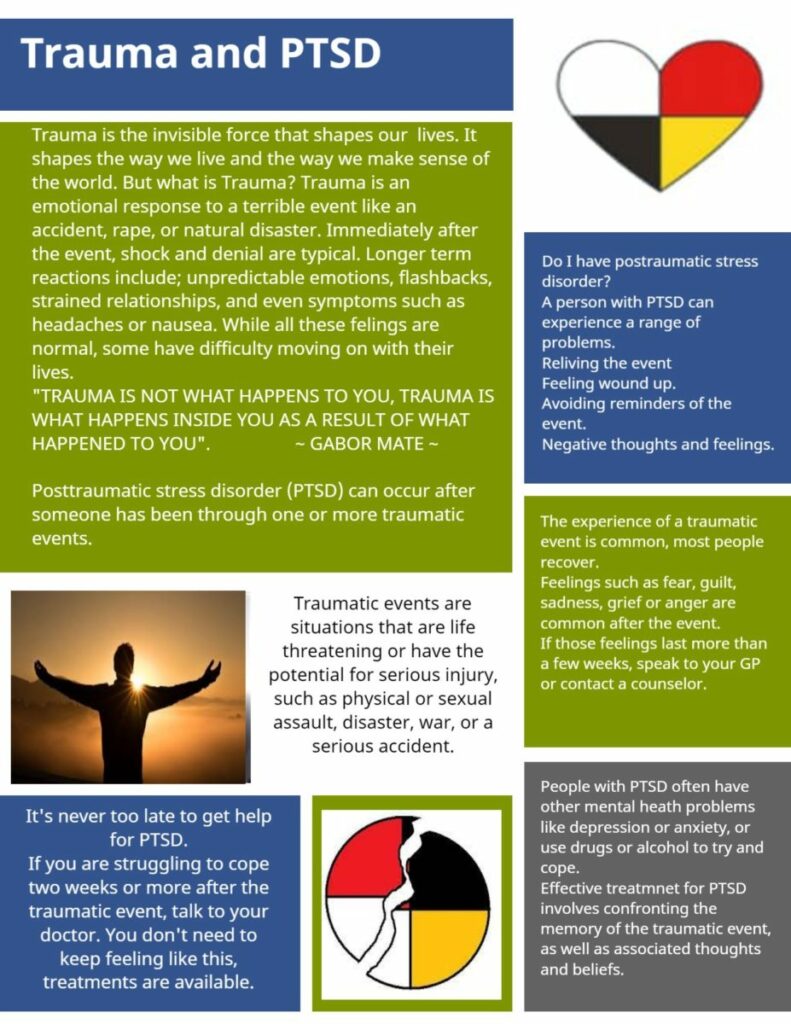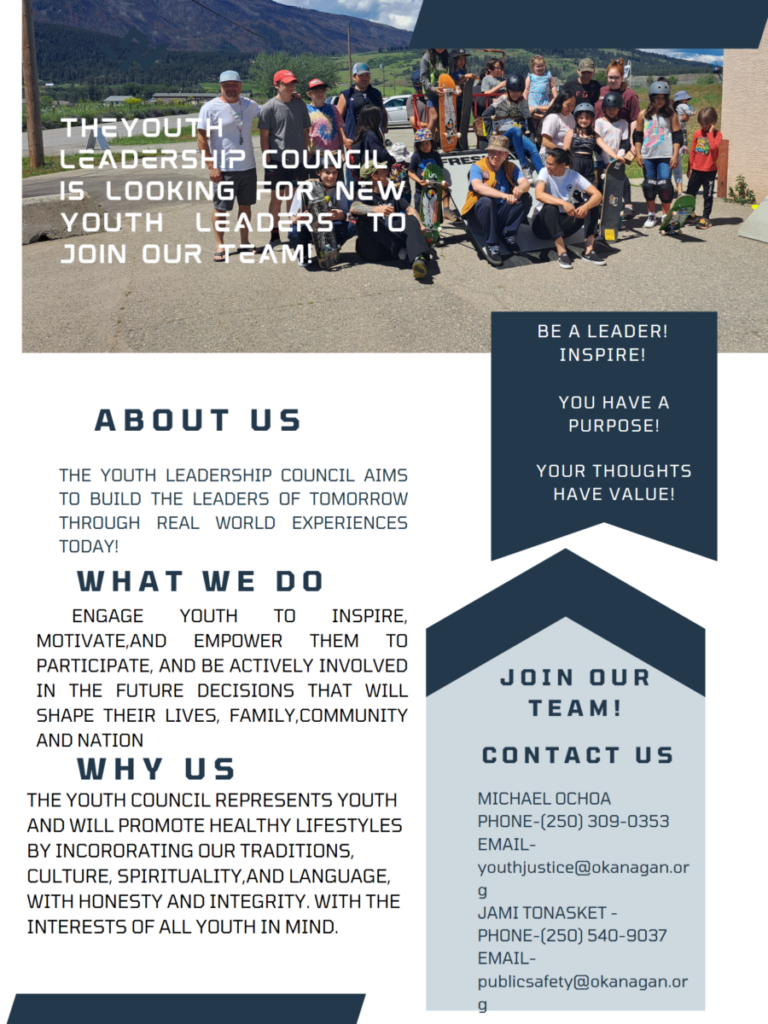Daily an individual may experience an emotional trigger by another person’s behaviour, attitude, or inappropriate actions. The emotional trigger is anything including memories, experiences or events that sparks an intense emotional reaction-regardless of current mood.
Since COVID began within the community and outlying areas, the fire, evacuation and losses; the many OKIB members who had passed on, also the news of communities who began sharing about the Indian Residential Schools of children being buried within their premises, on-going of Murdered and Missing Women and Men – all these experiences had an effect on individuals.
The healing process begins within oneself to share their truth of their experiences which helps one to overcome feeling anxiety, fear and to help one to find their voice. The workshop is a safe place with no judgement and each member is asked to keep confidentiality as it is up to the individual to share their story of truth with those that they feel safe in doing so. An individual has a choice of saying the name of a person(s) who affected them however no questions asked when individual chooses not to.
The two-day Mending Broken Hearts Healing Circle is scheduled monthly and an opportunity for OKIB members to participate in so one can start to process the effects of past or current experiences that has/had caused oneself to feel anxiety, or afraid to share.
It is important for an individual to process these past/current experiences through workshops, and one on one counselling, group healing circles. Wellbriety Meetings is a healing circle that is held every Wednesday at Public Safety. Contact Michael Ochoa at 250-309-0353.
The two-day Cultural Safety Education with Eric Mitchell and Chris Marchand as presenters with one/two staff members present as supporters. The educational workshop gives oneself information that will include Pre-contact, Canada’s Hidden History, Understanding Truth and Reconciliation etc. Information, discussion on how the Indian Act was implemented, the Indian Residential School, Day Schools, 60 scoop.
When an individual chooses to not process their past/current issues then it is passed onto others that may have triggered them; the unresolved issues or grieving that was endured over time has been passed on for generations since our Indian people have attended the Indian Residential Schools. There have been surveys, meetings where community members have expressed the need to feel safety, therefore as an individual we can do our best to heal self with the help of others.
To participate register on-line: [email protected]
Overview: Traumatic events are common, and most people will experience at least one during their lives.
Traumatic experiences may include:
-Being in a serious accident
-Being involved in war-either as a civilian or as part of military operations
-Being involved in a natural disaster, such as bushfire, flood etc.
-Being assaulted
Traumatic events include things that happen to you directly. Or to someone you are close to.
An event can be traumatic if you witnessed it happening to someone else or if you were involved in the course of your work. For example:
-If you were the first on the scene of a serious accident, or after a natural disaster.
-If you learnt that a friend or family member was in a life-threatening event, was seriously injured or died suddenly and unexpectedly.
In the first days and weeks after a traumatic event, people often experience strong feelings of fear, sadness, guilt, anger, and grief. As they begin to make sense of what happened to them, these feelings usually begin to subside. For some people though, a traumatic event can lead to mental health issues such as post-traumatic stress disorder (PTSD), depression, anxiety, alcohol, and drug use, as well as impacting their relationships with family, friends and at work.
Examples of childhood trauma could include:
-Being hit or smacked by your parents/grandparents.
-Having an emotionally unavailable parent who withholds affection.
-Being “punished” by kicking, shaking, biting, burning, hair puling, pinching, scratching etc.
-Being the child of divorce
-Being given inappropriate or burdensome responsibilities (such as caring for your parents)
-Not being fed or provided a safe place to live from your parents.
-Abandoned (your caretakers leaving you alone for long periods of time without a babysitter)
-Emotional neglect, ie: not being nurtured, encouraged, or supported.
-Being deliberately called names or verbally insulted
-Denigration of your personality
-Destruction of personal belongings
-Excessive demands
-Humiliation
-Car accidents, or other spontaneous traumatic events.
For one-on-one counselling contact Linda Williams 250-308-6662.









